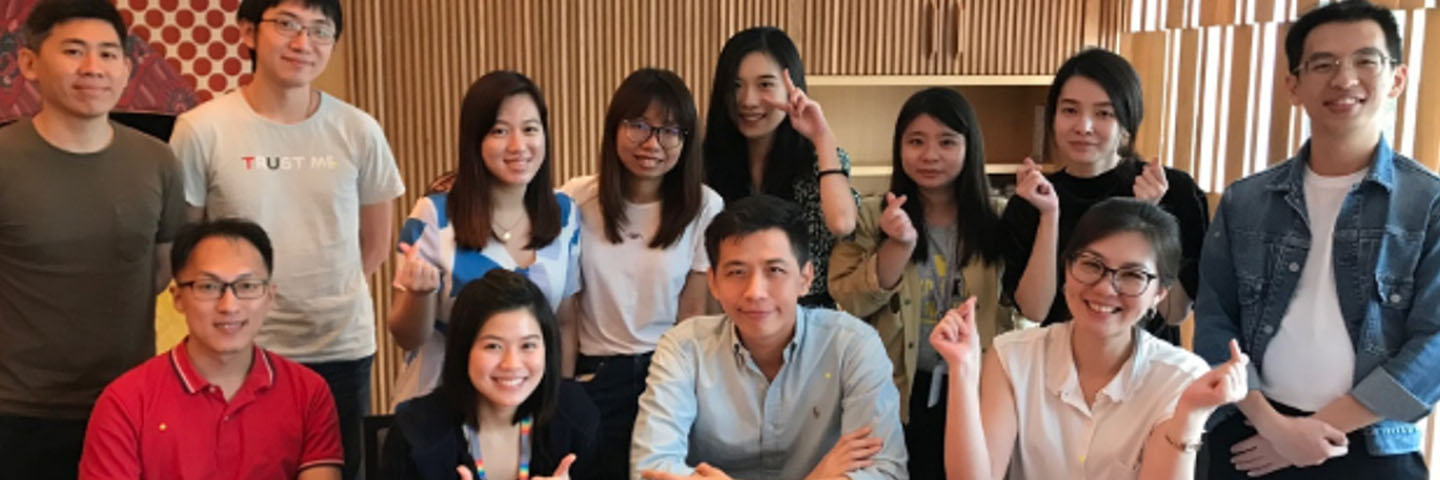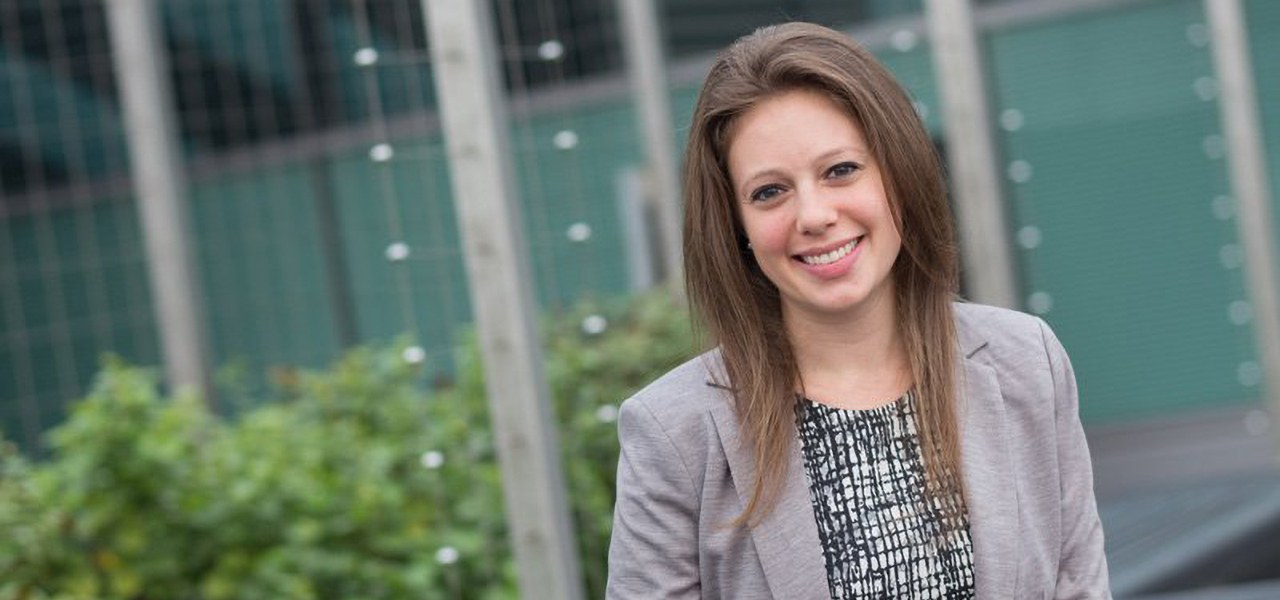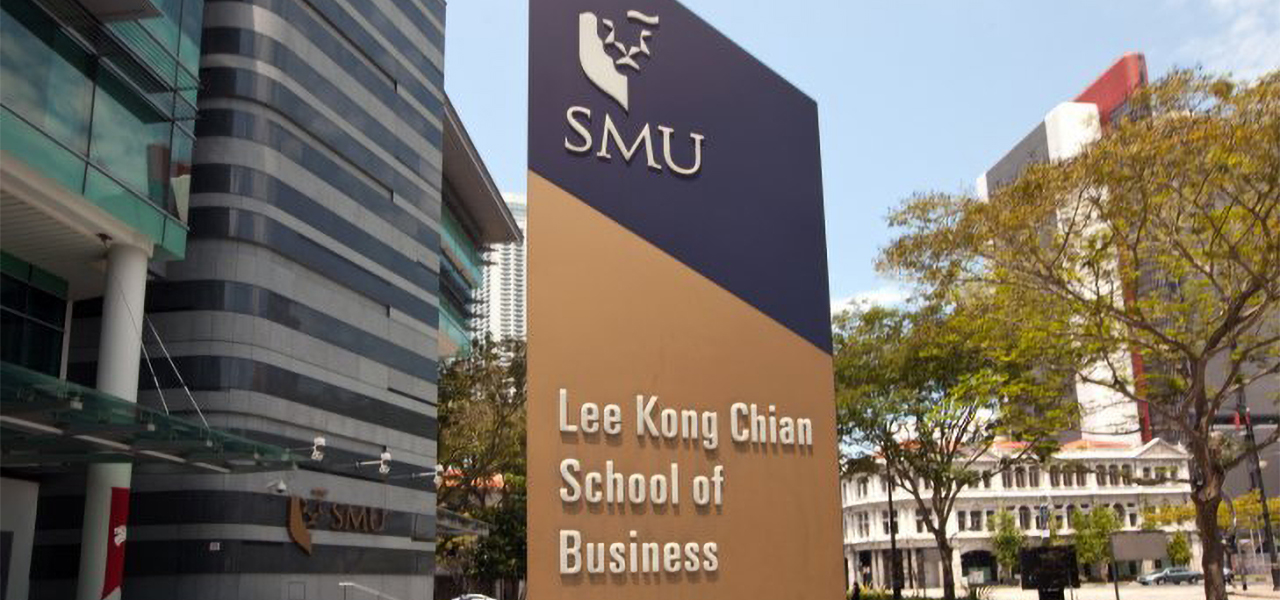Internships are an integral part of the learning journey at SMU, providing a structured experience to reinforce and apply knowledge acquired on campus. But with the onset of the COVID-19 pandemic, and subsequent halting of on-site work, securing an internship has become a challenge.
Luckily for Kate Lin Junyan, a student in the SMU Master of Science in Applied Finance (MAF) programme, she had secured an internship last October with Bitmain Tech - a firm that develops supercomputing chips, software and servers for the bitcoin mining industry.

“In the first semester of our MAF program, we attended multiple networking events, recruitment talks and workshops to learn ways to gain an edge during the job search process,” recalls Kate.
“When I first came to Singapore, I was drawn to its vibrant environment and had decided to build my career here. As such, during the Campus Career Fair in October, I embraced the opportunity to talk to the recruiters from different companies. Two weeks later, I received an invitation to interview for the accounting internship position with BitmainTech corporation.”
Kate prepped for the interview with the help of her career advisor from SMU, picking up and practising crucial interview skills, and receiving feedback through mock interview sessions.
“The sessions gave me the confidence to put my best self forward during the interview,” says Kate, who hails from Xiamen, a free trade zone city in the Fujian province of China.
Following two interviews with a human resources representative, a senior finance manager and an accounting manager at BitmainTech, she secured a six-month internship with the company.
“Through the internship, I gained practical experience that gave me greater confidence in tackling complex problems and equipped with many skillsets essential for success in the financial industry. My mentors spared no effort in honing my technical skills in accounting and shaping my professional mindset” says Kate.
Apart from performing daily tasks such as preparing the general ledger and reconciling financial statements and accounts, Kate was groomed by her mentors to assess the nature of each transaction and was given the opportunity to prepare cryptocurrency reinstatements for daily price fluctuations. Because of its cross-regional and diversified business structure, the company also boasted an inclusive work culture, with numerous fun team-building activities such as badminton tournaments and festive meals.
And then the COVID-19 pandemic hit
Working from home became the new norm to promote social distancing and safe working conditions for companies across the world, including Singapore.
“We have always adopted communication tools like (multi-purpose messaging and social media platform) WeChat and (video conferencing application) Zoom, so there is not much of a difference working at home or in the office,” says Kate.
“However, remote working has reduced the amount of the time the team spends together, but since I have worked with my colleagues prior to working from home, we can still gather online and chat,” adds Kate.

To encourage team bonding while working remotely, the company planned online activities like a family photo competition, whereby team members share family portraits and learn more about fellow team members and their backgrounds. But as much as the transition from being in an office to working from home was made seamless with the aid of digital tools, Kate did note that face-to-face interactions helped strengthen rapport.
“I still miss working alongside my colleagues in the office because communication is a lot more effective,” says Kate, who spent half her internship working from home.
After her six-month internship, Kate also amassed tips for other students embarking on a work placement: First, it never hurts to be communicative. While it is tempting to take a backseat and simply take on any task that comes your way, interns can be more proactive and clarify the requirements from an assignment with their supervisors or co-workers.
Next, interns should always display some enthusiasm for their work - even when they are assigned grunt work. Having this positive attitude towards their work exhibits a passion for the company and the job and leaves a favourable impression on your supervisor.
“Additionally, the MAF programme armed me with the relevant professional knowledge, analytical and quantitative skills, and research resources to allow me to stand out,” notes Kate. “The industry-relevant curriculum is designed to equip me with a comprehensive and solid foundation in the financial principles and practice, giving me the ability to succeed in challenging situations.”





